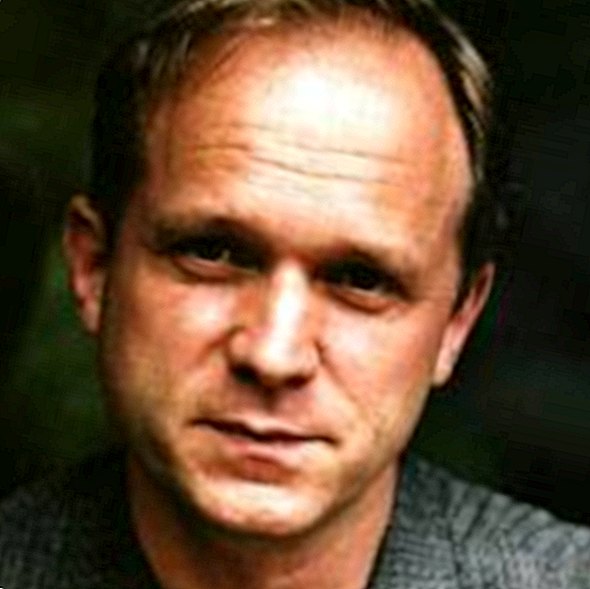What happened to Leo Monosson?

Ulrich Tukur, actor and musician, asks: "What has become of the most popular pop singer of the Weimar period, Leo Monosson, after he left Germany in 1933?"

Ulrich Tukur is the head of the band "Die Rhythmus Boys" and one of the best-known German character actors. On the occasion of the ten-year service anniversary of Commissioner Rosa Roth, he is also one of the stars along with Iris Berben and Mario Adorf: ZDF is celebrating with the three-part thriller "Rosa Roth - The Day Will Come", 23, 25 and 28 April, 20:15 each
Dear Ulrich Tukur, Musicians who want to become a legend, either die in the drug rush or can be shot. Another very popular artist is a death, as told by Leo Monosson: "The son of the Berlin bank Monosson & Levy laid the hearts of all women from 17 to 70 feet when Leo Monosson sang on the roof garden of the Berlin KaDeWe. .. then the ladies were no longer to hold, "it says for example on the album cover 'Dajos Bela and his dance orchestra'. And further: "Leo Monosson died in 1976 at the age of 80 years completely destitute in a nursing home in New York." The only thing that is true is that Leo Monosson was a very sought after artist. Under the pseudonyms Leo Moll, Leo Emm, Leo Frey, Leo Frank, Leo Mossner and Leo (n) Monosson he brought it to over 1400 recordings.

With hits like "Darling, my heart sends my regards" he also had short appearances in films, for example in 1930 in "The Three of the gas station". About his origins and his life beyond the microphones, but there were no known written records. Until now! We contacted Schallplatten-Verlag, the German Music Archive, GEMA, the Central Archive for the Study of the History of the Jews in Germany, the Deutsche Kinemathek - Museum für Film und Fernsehen, Unis and many other institutions. Finally, the Hamburg historian Holger Martens gave the crucial tip: For Hamburg, he would try it at the Office for Reparation of the Hamburg Social Welfare Authority. Now Monosson did not live in Hamburg, but in Berlin. But there is a similar facility there. "State Office for Civil and Regulatory Affairs, Department I - Compensation Authority" is called here and that's how it looks. From the outside, as if the time in the 30s had stopped. Inside the rooms still deserve the name "Amtsstube": Pine veneer furniture and file-filled cardboard covers right up to the ceiling. Including the Act of Leo Monosson! Their insight is worthwhile. Monosson had applied for compensation because of his forced emigration and had to file numerous documents for it. Among other things, a brief CV, documents about Monosson's marriage to his second wife, an inventory description of his 7-room apartment in the Helmstedter Strasse in Berlin-Wilmersdorf, which he had to give up, a flight report, details of Monosson's legacy and his death certificate. After that Leo Monosson died in 1967 with 69 and not 1976 with 80 years. And not in New York, but in Jamaica. Since the same address is still registered as living in Ardsley, New York, as in 1952, when Monosson filed an application for compensation in Berlin, it is also unlikely that Monosson was already living in a retirement home.
Well, and what about the "Berliner Bankierssohn"? Walter Weist from Berlin is a shellac record collector and will soon release a discography about Leo Monosson. In search of Monossons origin Walter Weist went through all the Berlin address books from 1882. A bank owner was not among them. Why should a Berlin banker have his son born in Russia and go to school there?
From the Monosson files in the Berlin compensation authority goes on to say: Leo Monosson was born on December 7, 1897 in Moscow, where he also graduated from high school. In 1918 he fled to Warsaw, Paris and Vienna, studied music especially singing. From 1923 Monosson lived in Berlin and developed his singing career, awarded film actors who could not sing, his voice and finally appeared even singing in films. In 1932, when Monosson married 14-year-old aspiring photographer Stephanie Arnsdorff, he was already a famous singer. Later he also made Stephanie sole heir. From the corresponding document it can be seen that she was already his second wife and that there were two children from her first marriage. The music publishers were forbidden after the seizure of power of the Nazi Party to engage him as a Jew. He was forced to emigrate to France. After the invasion of the Germans in France in 1941 it went on in Spain in the United States. There, Monosson worked as an employee. His famous voice was silent.Monosson explains in his file: "I never managed to earn money by singing after 1933. My style of presentation was developed by German culture and elsewhere strange and unpopular."
Dear Ulrich Tukur, We hope we could help you - and that you and your band keep the memory of Leo Monosson alive. Your ChroniquesDuVasteMonde
P.S. And this is what Ulrich Tukur says about this story: "I am deeply impressed by the dedication of the ChroniquesDuVasteMonde editors." At last, someone has brought light into the darkness. "










